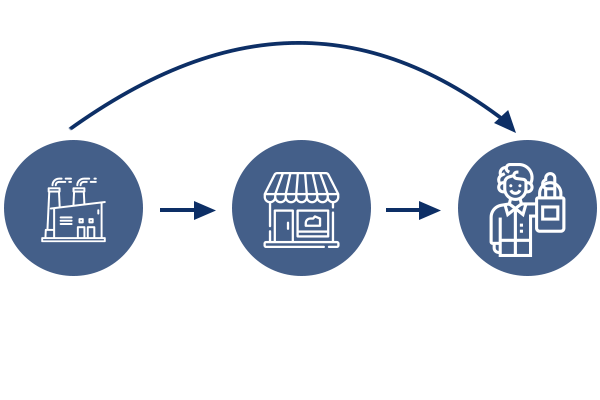In the past, B2B companies sold exclusively to one target audience: the business market. Over the years, technology has improved and distances have become shorter. Consequently, we can now explore more than one traditional route: it becomes easier to bypass intermediaries. Increasingly, B2B companies adopt direct-to-consumer eCommerce. Direct-to-consumer (D2C or DTC) means the direct sale from the (brand) manufacturer to the consumer, without involving a retailer, wholesaler, or other selling point. Not only does a D2C strategy reduce issues in the supply chain, but it also enhances customer brand loyalty. Additionally, it increases profit margins by eliminating intermediary(ies) from the chain. Sufficient reason to delve into this model.

eCommerce is moving rapidly. Boundaries blur, and customers can make purchases from anywhere in the world, right from the comfort of their homes or offices. Where wholesalers, distributors, or traders were once part of the process, D2C eCommerce skips these intermediaries. This results in significant savings for both you and the customer. However, don't jump for joy right away; an intermediary may sound unnecessary but may not be. They perform essential tasks to get your product to the customer, such as storage, logistics, marketing, customer service, etc. If you decide to adopt the D2C model, these tasks will also become part of your strategy.